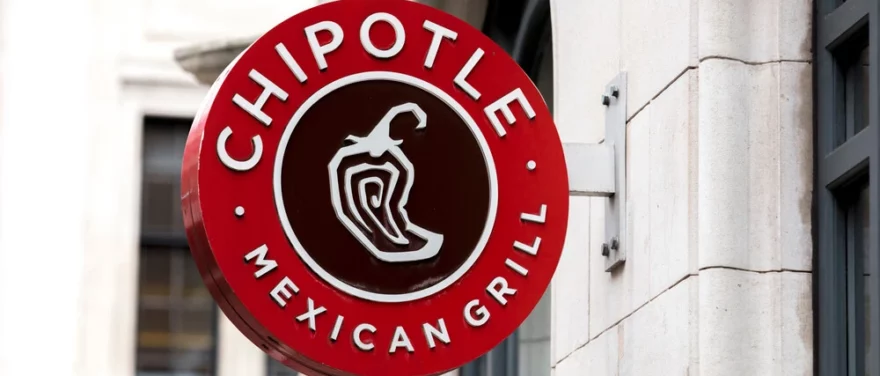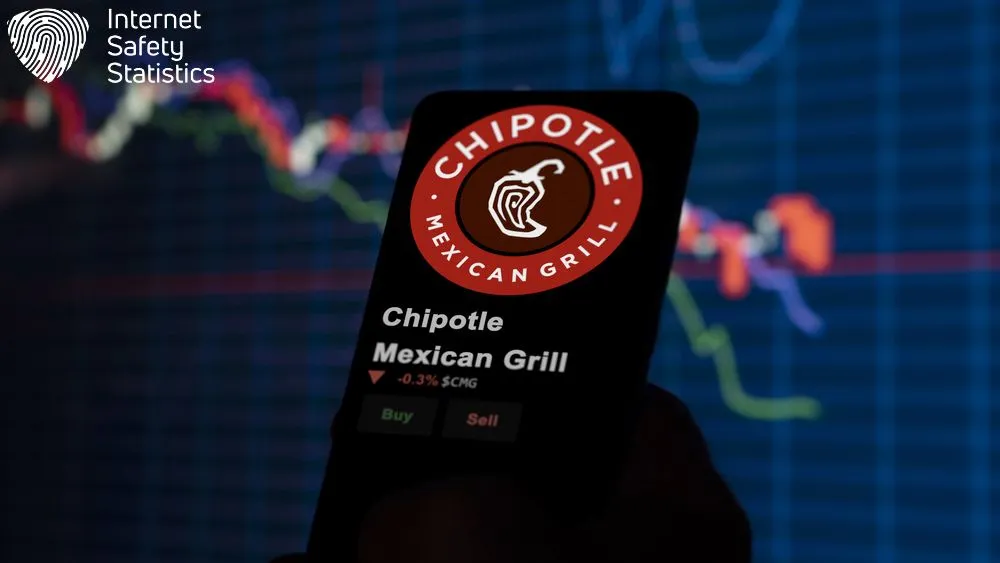
Data breaches have become a concerning reality for businesses and consumers alike. These incidents, defined as unauthorised access or acquisition of sensitive information, can have devastating consequences, from financial losses to reputational damage and legal repercussions. This article delves into the 2017 Chipotle data breach, a significant event that exposed the vulnerabilities of the food industry and highlighted the importance of robust data security practices.
By analysing the breach’s timeline, scope, and impact, we will gain valuable insights into its ramifications for Chipotle and the broader industry. The analysis will explore the company’s response, including immediate measures and long-term strategies, and evaluate their effectiveness in addressing the security vulnerabilities exposed.
Ultimately, this investigation aims to extract crucial lessons from the Chipotle incident, offering essential recommendations for businesses in the food industry and beyond to proactively enhance their data protection and incident response protocols.
The goal is not merely to recount the past but to learn from it, urging businesses to prioritise cybersecurity efforts in the digital age. By understanding the risks and implementing effective safeguards, companies can create a more secure environment for both their data and their customers’ trust.
Background of Chipotle
Founded in 1993, Chipotle Mexican Grill quickly revolutionised the fast-food industry with its focus on fresh, responsibly sourced ingredients and customisable meals. From its humble beginnings in Denver, Colorado, it grew into a national chain with over 2,600 restaurants by 2017, boasting a loyal customer base drawn to its distinctive “fast-casual” dining experience. Chipotle’s dependence on technology to handle online orders, loyalty programs, and mobile payments also highlighted the crucial role data played in its operations and customer relationships.
Importance of Data Security in the Food Industry
The food industry presents unique challenges when it comes to data security. Unlike traditional brick-and-mortar businesses, restaurants collect and store a wide range of sensitive customer information, including:
- Payment card details: Credit card numbers, expiration dates, and security codes, which are prime targets for cybercriminals due to their financial value.
- Personal information: Names, addresses, phone numbers, and email addresses, which can be used for identity theft or targeted marketing campaigns.
- Loyalty program data: Purchase history, preferences, and rewards points, which can be valuable for profiling customers and designing targeted promotions.
Data breaches in the food industry can have severe consequences, impacting businesses and customers alike. Financial losses due to fraudulent charges, regulatory fines for non-compliance with data protection laws, and reputational damage leading to customer trust erosion are just some potential ramifications. Additionally, the food industry is subject to specific data security regulations depending on the region, further emphasising the importance of robust data protection measures.
Previous Data Breach Incidents
Unfortunately, data breaches aren’t new to the food industry. In 2013, Wendy’s experienced a widespread breach affecting millions of customers’ payment card information. Similarly, Panera Bread faced a data breach in 2017, compromising customer names, email addresses, and loyalty program data. These incidents, along with others, exposed the vulnerabilities within the sector and served as a stark reminder of the potential consequences of inadequate data security.
Learning from these earlier breaches is crucial to understanding the context of the Chipotle incident. They highlighted the industry’s susceptibility to cyberattacks and the need for companies to invest in robust security measures to protect sensitive customer data. While Chipotle hadn’t faced a major breach prior to 2017, the industry-wide trend served as a warning sign of the potential risks it faced.
Impact of the Chipotle Data Breach
The 2017 Chipotle data breach sent shockwaves through the company and the food industry, triggering a cascade of negative consequences.
Financial Implications for Chipotle
The data breach set off a chain reaction of financial burdens for both Chipotle and its customers. Exposed payment card data fueled a wave of unauthorised purchases, leading to financial losses for both parties. While the exact amount remains undisclosed, industry estimates suggest millions of dollars vanished in fraudulent transactions.
Chipotle itself wasn’t spared the financial burden. Investigating the breach, implementing security upgrades, and supporting affected customers incurred significant costs. Forensic analysis, IT infrastructure improvements, legal fees, and customer service initiatives all contributed to a hefty bill.
Finally, depending on the data protection regulations in effect at the time, Chipotle could have faced regulatory fines for non-compliance. This potential penalty added another layer to the financial strain caused by the data breach.
Reputational Damage and Customer Trust
Following the 2017 data breach, Chipotle’s reputation suffered a blow as consumers expressed concerns over the security of their personal information. The incident tarnished the company’s image as a trusted fast-food chain, leading to a loss of consumer confidence.
- Erosion of trust: News of the data breach severely damaged Chipotle’s reputation, eroding customer trust and loyalty. Consumers became concerned about the safety of their sensitive information and whether the company could adequately protect it. This resulted in negative publicity, damaged brand image, and potentially decreased customer satisfaction and loyalty.
- Shift in consumer behaviour: The breach likely caused customers to be more cautious about using their credit cards at Chipotle, potentially favouring alternative payment methods or opting for competitors altogether. This could have impacted short-term sales and long-term brand perception.
Legal and Regulatory Ramifications
Customers affected by the data breach and resulting fraudulent charges filed lawsuits against Chipotle, leading to a class-action settlement. The agreement offered $250 to qualifying individuals who made purchases at Chipotle or Pizza Locale during the breach period, acknowledging the inconvenience and impact customers faced.
Response and Actions Taken by Chipotle
In the wake of the 2017 data breach, Chipotle faced the daunting task of mitigating the damage and regaining customer trust. This section examines the actions the company took, categorised into immediate measures, communication strategies, and long-term plans:
Immediate Measures Taken Post-Breach
The company removed the malware from its system and launched a tool to help customers identify affected restaurants and dates. Chipotle advised vigilance in monitoring payment card statements for suspicious transactions. Although the breach was concerning, credit card companies are adept at detecting stolen cards and shutting them down. Here’s a breakdown of how Chipotle dealt with the whole situation:
- Containing the breach: Upon discovering the attack, Chipotle prioritised containing the malware and securing its systems to prevent further data exposure. This likely involved isolating infected systems, patching vulnerabilities, and resetting access credentials.
- Investigating the incident: The company partnered with cybersecurity experts to conduct a thorough investigation to understand the scope of the breach, the methods used by attackers, and the data compromised. This information was crucial for informing subsequent actions.
- Notifying affected customers and stakeholders: Chipotle publicly acknowledged the breach and issued timely notifications to affected customers, outlining the nature of the incident, the potential risks, and steps they could take to protect themselves. Additionally, relevant stakeholders like law enforcement agencies and payment card networks were informed.
Communication with Affected Customers and Stakeholders
- Transparent communication: Maintaining open and transparent communication with customers throughout the ordeal was crucial for rebuilding trust. Chipotle issued regular updates on the investigation progress, data protection measures taken, and resources available to affected customers.
- Customer support: The company established dedicated customer support channels to address concerns, answer questions, and provide assistance to individuals whose information might have been compromised. This could have included offering credit monitoring services or issuing new payment cards.
- Reassuring communication: Chipotle emphasised its commitment to data security and outlined the steps it was taking to strengthen its cybersecurity posture. This helped demonstrate accountability and a proactive approach to addressing the vulnerabilities exposed by the breach.
Long-Term Strategies for Data Security Improvement
By proactively addressing vulnerabilities and adopting robust security measures, companies can fortify their defences and mitigate the risk of data breaches. This section explores key long-term strategies that Chipotle and similar entities can employ to enhance their data security posture, ensuring the integrity and confidentiality of customer information over time.
- Investing in security infrastructure: Recognising the need for robust data protection, Chipotle invested in upgrading its security infrastructure, including implementing better endpoint security, advanced malware detection systems, and stronger data encryption measures.
- Employee training: Comprehensive cybersecurity awareness training for employees aimed to prevent future incidents by educating them on phishing scams, suspicious activities, and password security best practices.
- Third-party vendor assessments: The company implemented stricter security evaluations for third-party vendors it partnered with, ensuring their data handling practices met acceptable security standards.
- Ongoing security audits: Regular security audits and penetration testing became standard practice to identify and address any new vulnerabilities in Chipotle’s systems and infrastructure.
Analysis of Data Security Practices
The 2017 Chipotle data breach serves as a stark reminder of the importance of robust data security practices, particularly in industries handling sensitive customer information. This section delves into an analysis of Chipotle’s pre-breach security, potential vulnerabilities, and industry best practices:
Evaluation of Chipotle’s Pre-Breach Security Measures
- Existing security protocols: While specific details remain undisclosed, it’s crucial to understand what security measures Chipotle had in place prior to the breach. This analysis should consider areas like endpoint security, data encryption, password management policies, and vulnerability patching practices.
- Third-party security audits: Were independent security audits conducted regularly to identify and address potential vulnerabilities in Chipotle’s systems and infrastructure? Evaluating the existence and scope of these audits can provide insights into the overall security posture before the breach.
- Employee training: Information about the adequacy and frequency of cybersecurity awareness training programs for employees can shed light on potential human factors that might have contributed to the breach.
Identification of Potential Vulnerabilities or Weaknesses
- Attack vectors: Based on available information about the breach (e.g., malware used, data compromised), what potential vulnerabilities or weaknesses in Chipotle’s systems or practices might have been exploited by attackers? This analysis can help identify areas for improvement in future security strategies.
- Insider threats: While the 2017 breach involved malware, it’s essential to consider the potential for insider threats and the company’s safeguards against them. Were access controls and data handling procedures adequate to mitigate this risk?
- Third-party vendor security: Evaluating the security practices of Chipotle’s third-party vendors is crucial, as vulnerabilities in their systems could provide attackers with an entry point to access the company’s data.
Comparison with Industry Standards and Best Practices

Data security regulations are a critical aspect of ensuring the protection of sensitive information. For Chipotle, assessing its adherence to relevant data protection regulations within its operating jurisdictions is imperative. Analysing the compliance measures implemented by Chipotle and identifying any potential gaps between regulations and actual practices is essential. This examination provides insight into the company’s commitment to safeguarding customer data and mitigating the risk of data breaches.
Furthermore, comparing Chipotle’s security practices to recognised industry best practices for data security in the food industry is crucial. By benchmarking against established standards, such as those set forth by industry associations or regulatory bodies, Chipotle can evaluate the effectiveness of its data security protocols.
This comparative analysis highlights areas where the company may have fallen short or exceeded expectations in safeguarding sensitive information. Identifying strengths and weaknesses in Chipotle’s security posture enables the organisation to refine its practices and better protect against potential threats.
The 2017 Chipotle data breach stands as a stark reminder of the vulnerabilities lurking in today’s digital landscape. It exposed the financial consequences, reputational damage, and legal ramifications that businesses can face when data security falls short. By analysing the incident, we gain valuable lessons about the importance of proactive security measures, transparent communication, and building trust with customers.
